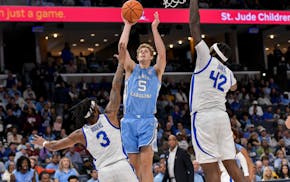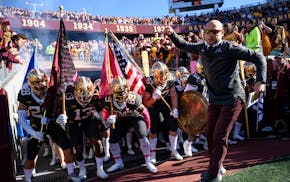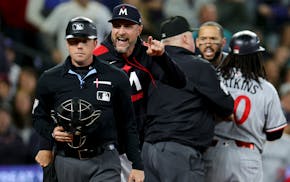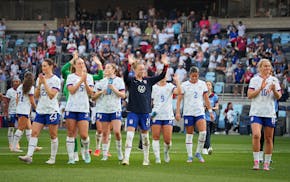Bloomington Kennedy's 60th season of boys hockey will serve as a conclusion.
The school announced Thursday that it will disband its boys hockey program after the 2024-25 season and encouraged athletes to play at Bloomington Jefferson. Kennedy and Jefferson already have a co-op in girls hockey.
"Absolutely saddened," Kennedy activities director Jon Anderson said. "We have a rich tradition going back to the 1960s. We wish we were able to maintain a stand-alone program."
A statement posted on the school website cited low participation for the decision.
"Since the Eagles inaugural season in 1965, the population, demographic, culture and economy of East Bloomington have drastically changed," the statement said. "These changes contributed to a decline in East Side participation at the youth levels in the sport."
The cost of participating in hockey had a role in the decline, Anderson indicated.
"Hockey is an expensive sport," he said. "We try to make all sports as affordable as possible. A number of communities are seeing lower participation."
Bloomington Kennedy, long associated with the phrase "East Side Pride," has made seven state tournament appearances and won one state championship, in 1987, led by forward Jason Miller, who went on to play for the Gophers. The Eagles finished second in 1984.
The Eagles' most recent state tournament appearance came in 1991. Last season, coached by Brandon Tveitbakk, the team went 4-22 and ended the season with a 10-0 section tournament loss to Mahtomedi. Kennedy has competed in Class 1A since 2013; the program last reached double digits in victories in 2015-16, going 12-13.
In its statement, Kennedy encouraged athletes and their families to take steps that could revive interest and referenced the merger with Jefferson: "We are hopeful that together the spark can be reignited through creative recruitment to encourage more of our youth on the East Side to suit up. For inspiration, and to celebrate the richness and diversity of our community, we encourage looking at youth hockey initiatives from across the state that are 'low or no cost' and provide 'in house' leagues that better meet the needs of all families."
Anderson said it was clear the youth program was no longer generating the numbers to sustain the program.
"The hockey community does a great job of telling us what we can anticipate coming through the pipeline," he said.

Gophers men's basketball team lands transfer Cade Tyson from North Carolina

Twins let another ninth-inning rally go to waste, lose to Mariners on walk-off single

Two offensive tackles, linebacker are first to commit to Gophers in 'Summer Splash' weekend

Twins' Correa ejected from on-deck circle, and he's not really sure why

